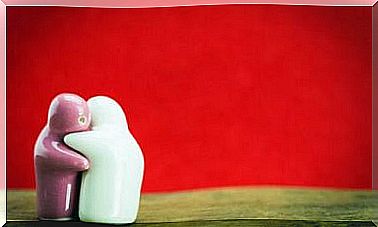I Learned To Say “yes” Without Fear And “no” Without Guilt
I achieved. I live without fear and I’ve lost my shame, now I’m not afraid to tell you that in your square you can do what you want, but in mine, I want your respect. I say “no” without reservation to anyone who brings me storms on sunny days and I say “yes” to my life, to my yearnings, and obviously to my dignity.
Self-affirming without attacking is an attitude and behavior that not everyone knows how to perform. Sometimes pride is confused with selfishness or self-assertion with the imposition of one’s own values. But saying “yes” without fear and “no” without guilt is much more than a necessary exercise in mental hygiene and survival.
In our daily lives, we often come across the same type of people. On the one hand are those who wish to be on good terms with everyone and always have a selfless and devout “yes” on their lips. On the opposite side are the most nervous. The ones who “no one has the right to tell me what to do” or “I owe you nothing so get out of my way.”
Extremes are never good, because the key to respectful and wise survival is at the center where we assert ourselves without attacking and without becoming permeable to the point of diluting ourselves with other people’s dictates in order to satisfy. To fit in.
Saying “yes” without fear: validation as a person
As children, no one teaches us what this called self-esteem is. Depending on our upbringing and the experiences we have throughout childhood and adolescence, we will develop an “imitation” to try to survive.
Authentic fire tests come with time. These are complex moments that no one has prepared us for, moments in which to test our fears, weaknesses or strengths to adapt to this tremendously complex world. Where neither inflated egos nor rickety egos will be functional, let alone happy.
Saying “yes” without fear but with respect to each of our aspirations and needs is vital. Many of us, for example, were educated without knowledge about this, in the “law of personal weariness”: in that external complacency where we seek frequent approval from others to assert ourselves as people. Our dignity, in these cases, is imprisoned in the cellars of fear and in the purest indecision.
Similarly, it is also common to silence and drown desires and desires for fear of being sanctioned or, even worse, being rejected by those around us when seeing the disappointment on their faces. Little by little and in case we don’t react, we end up invalidating ourselves, taking away the legitimacy of having a voice, of breathing and simply being people capable of saying “yes” when life invites us to live.
Saying “no” without guilt, living being coherent
Accepting yourself, beyond what many say, shouldn’t take us all our lives. Self-acceptance, like self-esteem, should be a mandatory sport to practice from childhood. It should be a restorative yet liberating religion that teaches us to believe in ourselves and, at the same time, in our abilities to respect ourselves and others.
Because to live without fear is to say “yes” without weight on conscience, and to say “no” is to live coherently, it is to survive in each area of our own existence, giving an authentic and full aspect to our self-esteem and to those around us.
We suggest considering the following aspects to learn to say “no” whenever you need to, without any burden on your conscience.
How to be assertive without weight on conscience
Self-assertion without attacking is an art that we need to perform with exact elegance and finely tuned precision. Nothing we say should lead to mistakes, every word needs to define us and shape our needs, our vital rights and our own insurmountable limits.
- Saying “no” when others expect a “yes” from you is not an act of betrayal. It means asserting yourself in your posture so that others can act accordingly, getting to know you better as a person.
- Saying “no” in time saves lives, especially yours. It saves you from situations that would have put you on the path of unhappiness, selfish impositions and sufferings from which we all need to defend ourselves.
- The “no” needs to be said in time, without fear and without any shame. Anyone who likes you will accept you with respect and, in fact, won’t even be surprised because they already know you. But whoever puts up resistance to his denial or feels betrayed will have only two options, accepting it this way or leaving through the back door of his heart.
In conclusion, it’s just a matter of practicing authenticity and a sense of survival where the veils and all the shame finally fall. Because happiness is beyond the line of fear, the one that we need to cross with courage, with our heads held high, our eyes open and our hearts happy.
Images courtesy of Morgan Davidson.









